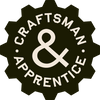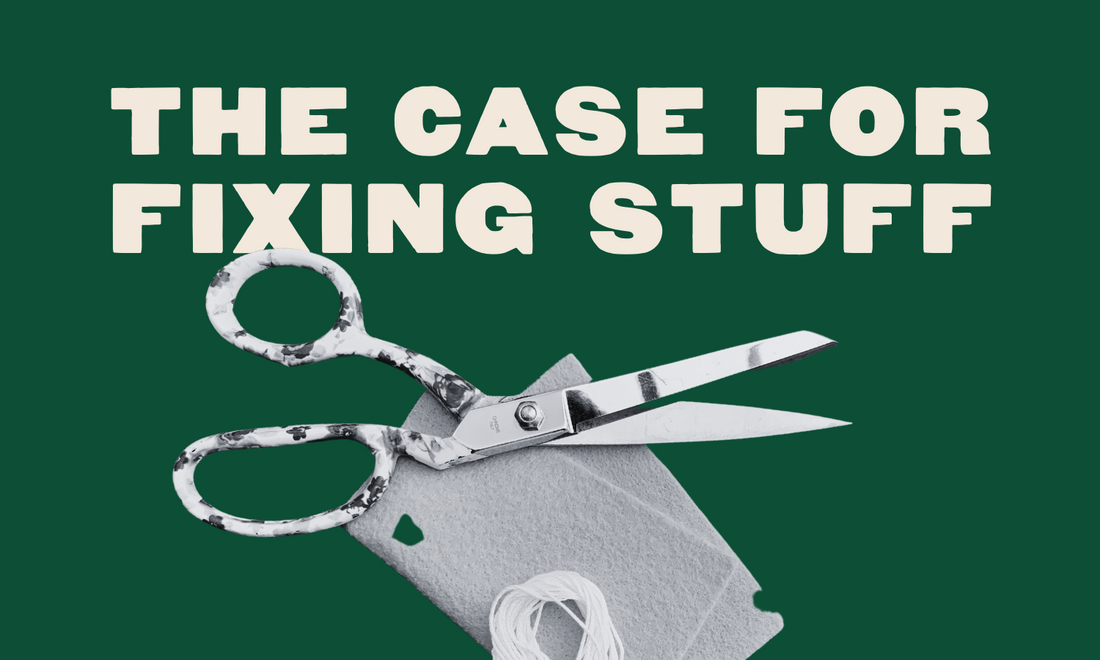When I was seven, my mom signed me up for a sewing class. I had dreams of being a fashion designer…Compared to lots of people, I’m not that great at sewing, but I can get the job done. I’m more of a master-of-none kind of person…what I really learned from that class was that I can fix things. When you sew, there are inevitable mistakes, seams to be ripped, and alterations to be made. Making things has taught me how to fix things, walk away when things are irreparable, and reflect, refine, and improve in all aspects of my life. Not that this is an exact science, I am a human person. I have always fancied myself a fixer. I can sew a button, mend a hole, apologize when needed, and solve a problem. I’m cool under pressure. I’ll have a good cry later.
What I love most about teaching is building a little community of makers. Our community begins with being accountable to one another. To learn to recognize how your actions affect the people and spaces around you. We’re all just people learning, and messes will be made. How we deal with our messes matters. We can make excuses, blame, and deflect, that’s easy, and yes, sometimes there are reasons things don’t go quite right. However, the ability to look inward and identify where you could have done something different and make changes for the better is an important and hard thing to do. It’s a skill that needs to be practiced. Otherwise, it’s all too easy for our little egos to take over to keep us from feeling shame. If we can learn to fix things and clean up our messes in our physical realm, maybe it helps to make it easier to fix things and clean up our messes in our relationships and communities.
In The Shop Model (our guiding principles here at C&a), we say, “Clean up your messes, literally and figuratively.” This means that each maker in our community is responsible for themselves and to each other. We work on taking accountability for the things we make and the messes that are inevitably made. If you spill paint, you clean it up. No big deal. You do something that’s not very nice; you clean that up, too. We work to model ways to acknowledge when things don’t go quite right and how to repair them without shame. The more we can teach and model personal accountability, and that fixing stuff, cleaning up, and sometimes saying “sorry, or how can I help?” is part of life, the better off our kiddos will be. We’re all just messy people who get holes in our clothes and sawdust on the floor; sometimes, we miss the mark and hurt people. How we handle the repair and the clean-up is essential.
Five Accountability Phrases:
- How can I help?
- We all clean up our own messes around here.
- I’m sorry. In the future, I will__________.
- How can I repair/fix this?
- Hey, that didn’t feel so good/go so well; what could you do differently in the future?
Five Fixing Skills
Five Fixing Skills:
- Sew a button. Sewing a button is a real-life fix-it skill you can always carry with you.
- Sweep a floor. This tangible task teaches kids to take care of their spaces.
- Write a thank you note. Notes of appreciation are a nice way to show appreciation for the kind things people do for. It can also be a way to repair sticky social stuff.
- Making something, anything. Making stuff helps us practice consideration, mistakes, reflection, and caring for spaces.
- Take something off someone’s plate. Help your kiddo notice when others are taking care of them. Ask them if they can take on the task. Mom does the dishes every night? Take it off her plate. Dad vacuums the whole house; take care of it.

